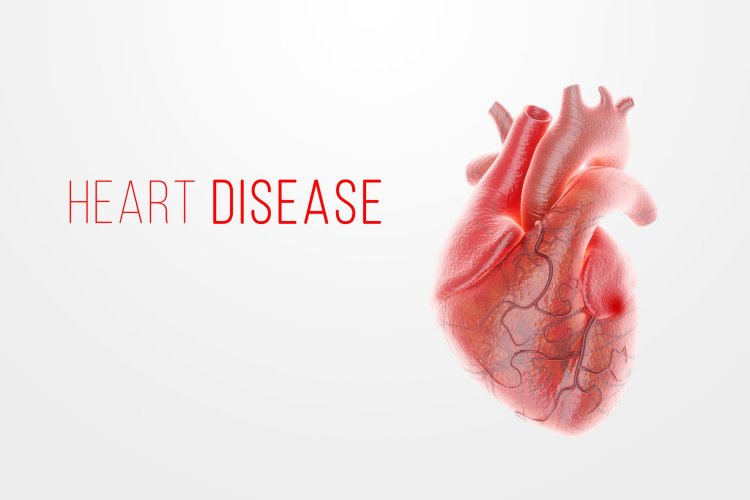Protecting Your Heart: Strategies to Combat Coronary Heart Disease
Coronary Heart Disease (CHD), also known as coronary artery disease or ischemic heart disease, is a medical condition characterized by the narrowing or blockage of the coronary arteries—the blood vessels that supply oxygen and nutrients to the heart muscle. CHD is the most common type of heart disease and a leading cause of death worldwide.

Understanding Coronary Heart Disease
CHD develops over time due to the buildup of plaque—a combination of fat, cholesterol, calcium, and other substances—inside the coronary arteries. This buildup, known as atherosclerosis, narrows the arteries and reduces blood flow to the heart. In severe cases, the plaque can rupture, leading to the formation of blood clots that can block the flow of blood to the heart, resulting in a heart attack.
Risk Factors
Several factors contribute to the development of CHD, including:
- High Blood Pressure: Hypertension increases the workload on the heart and damages the arterial walls, promoting the development of atherosclerosis.
- High Cholesterol Levels: Elevated levels of LDL cholesterol (often referred to as "bad" cholesterol) can lead to the accumulation of plaque in the arteries.
- Smoking: Tobacco smoke contains chemicals that damage the blood vessels and accelerate the progression of atherosclerosis.
- Diabetes: Individuals with diabetes are at higher risk of developing CHD due to elevated blood sugar levels, which can damage the blood vessels over time.
- Obesity: Being overweight or obese increases the risk of CHD by promoting conditions such as hypertension, diabetes, and high cholesterol levels.
- Physical Inactivity: Lack of regular exercise contributes to the development of CHD by promoting obesity, high blood pressure, and abnormal cholesterol levels.
- Unhealthy Diet: Diets high in saturated and trans fats, cholesterol, salt, and sugar increase the risk of CHD.
- Family History: A family history of CHD or heart attacks increases an individual's risk of developing the condition.
Symptoms
The symptoms of CHD vary depending on the severity of the condition but may include:
- Chest pain or discomfort (angina)
- Shortness of breath
- Fatigue
- Weakness
- Nausea
- Sweating
- Dizziness
Diagnosis and Treatment
Diagnosing CHD typically involves a combination of medical history assessment, physical examination, and diagnostic tests such as:
- Electrocardiogram (ECG)
- Stress test
- Coronary angiography
- Cardiac CT scan
- Cardiac MRI
Treatment for CHD aims to relieve symptoms, reduce the risk of complications, and improve overall heart health. Depending on the severity of the condition, treatment options may include:
- Lifestyle changes: Adopting a healthy diet, engaging in regular exercise, quitting smoking, and managing stress can help prevent and manage CHD.
- Medications: Drugs such as statins, beta-blockers, ACE inhibitors, and antiplatelet medications may be prescribed to lower cholesterol levels, control blood pressure, prevent blood clots, and reduce the workload on the heart.
- Medical procedures: In severe cases of CHD, medical procedures such as angioplasty, stenting, or coronary artery bypass surgery may be recommended to restore blood flow to the heart.
- Cardiac rehabilitation: Cardiac rehabilitation programs help individuals recover from heart-related procedures, improve cardiovascular health, and reduce the risk of future heart problems.
Prevention
Preventing CHD involves addressing modifiable risk factors through lifestyle modifications and regular medical check-ups. Key preventive measures include:
- Maintaining a healthy weight
- Following a balanced diet low in saturated fats, cholesterol, and sodium
- Engaging in regular physical activity
- Avoiding tobacco products
- Limiting alcohol consumption
- Managing stress
- Monitoring and controlling blood pressure, cholesterol levels, and blood sugar levels
In conclusion, Coronary Heart Disease is a significant public health concern globally, contributing to millions of deaths each year. Understanding the risk factors, symptoms, diagnosis, and treatment options for CHD is essential for prevention, early detection, and management of this life-threatening condition. By adopting a heart-healthy lifestyle and seeking appropriate medical care, individuals can reduce their risk of developing CHD and improve their overall heart health.
#CoronaryHeartDisease #CHD #RiskFactors #Symptoms #Diagnosis #Treatment #Prevention #HeartHealth #HealthyLifestyle
Disclaimer:
The information provided in this article is for educational purposes only and should not be considered medical advice. If you have any health concerns or are experiencing symptoms, it is important to consult with a healthcare professional, such as a doctor or clinic, for proper diagnosis and treatment. Always seek the advice of your doctor or other qualified health provider with any questions you may have regarding a medical condition. Do not disregard professional medical advice or delay in seeking it because of something you have read in this article.
What's Your Reaction?





















